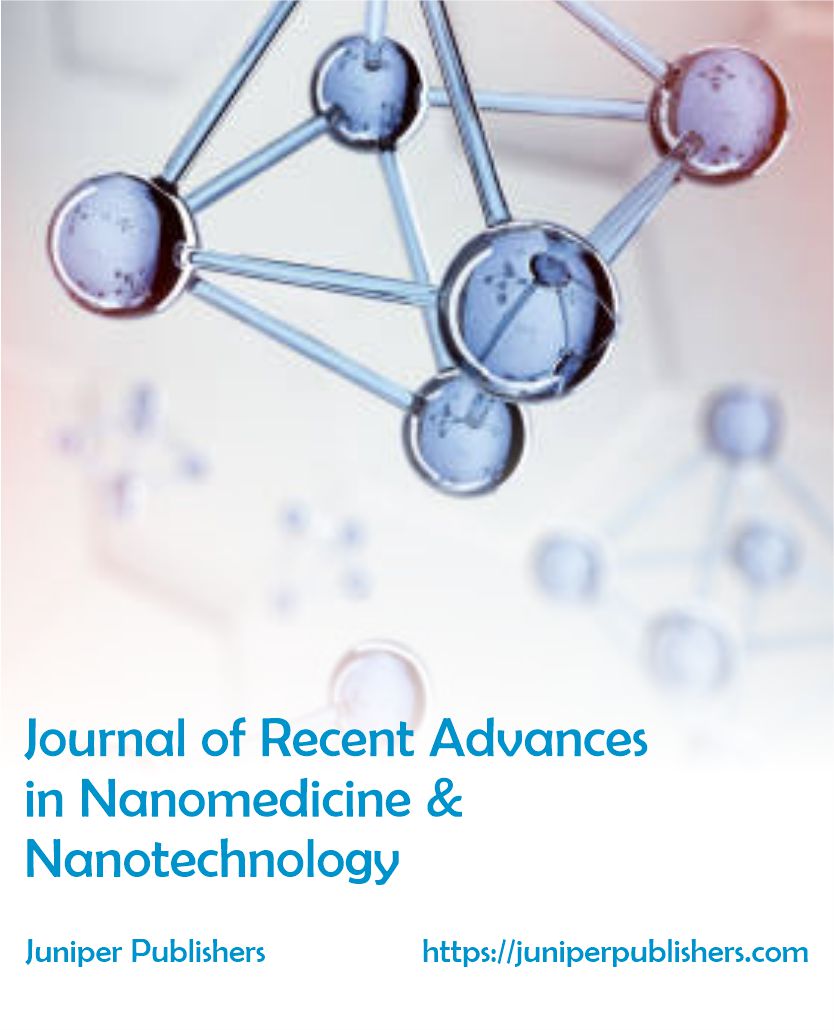Honorable Editors
Haifeng Frank Ji
Drexel University
USA
View Profile
Drug discovery for treatments of biofilm-related diseases and cancers, MEMS devices, Nanomaterials for energy and environmental applications, etc.
Dr. Haifeng Frank Ji obtained his PhD from CAS in 1996 is current a professor of Department of Chemistry, Drexel university. His research interests focus on drug discovery for treatments of biofilm-related diseases and cancers, MEMS devices, nanomaterials for energy and environmental applications, etc. He is currently a co-author of more than 200 peer-viewed journal articles and book chapters with an H-index of 42.
Arghya Narayan Banerjee
Yeungnam University
South Korea
View Profile
Nanostructured Thin Films; Wide Bandgap Metal Oxides; Transparent Nano-Electronics; Carbon-Based High Surface Area Materials etc
Prof. Arghya Narayan Banerjee is currently a Professor in the School of Mechanical Engineering, Yeungnam University (YU), South Korea. He was one of the five WCU Faculty members at YU. After finishing his Ph.D. (2005) at Jadavpur University, India, he joined the University of Nevada and the University of Colorado at Boulder, USA before moving to YU. Arghya is the recipient of the National Scholarship, Govt. of India, and winner of the CSIR fellowship – an all-India-based Young Scientist hunt. He is also the recipient of the Outstanding Scientists Award 2023 on new science invention given by ScienceFather and Prof. Joseph Wang Young Scientist Award 2015 conferred by the publishing division of Cognizure. Research interests include Nanostructured Thin Films, Wide Bandgap Metal Oxides, Transparent Nano-Electronics, Carbon-Based High Surface Area Materials (Graphene, CNT, Micro/Mesoporous Carbon, Graphitic Carbon, etc.) for Hydrogen Storage, Field Emission Devices for Vacuum Microelectronics, Transparent Thin-Film Junctions for UV-Based Solar Cells, Layered Materials for Thermoelectric Converters, Polymer/Metal-Oxide Nanocomposites for Super-Capacitors, Catalytic/Photocatalytic Degradation of Water-Soluble Toxic Wastes for Environmental Remediation, Micro/Nanofluidics, among others.
Yongbin Zhang
Changzhou University
China
View Profile
Mass transfer; Nanoporous filtration membrane; Hydrodynamics; Multiscale and nanoscale flows
Iftikhar Ahmed
Abu Dhabi University
UAE
View Profile
Nanomedicine; Nanomaterials; Energy; Water; Environment; etc.
Dr Iftikhar hold professional career spread over two decades in Nano chemistry of energy, water, climate change with multilingual fluency in French, English, Urdu, Hindi. He obtained his Doctor of Science Ph. D (Nano Chemistry) from Marie Curie Lab. At University of Paris, France in 2013. He has earned his MSc & M. Phil Chemistry with distinction. Dr. Ahmed has been recipient of Presidents Award by Federal Government of Pakistan. He has been research laureate of French Microscopy society and Adnoc-TRC research award. Prior to joining ADU, He has been selected by Board as Executive Director in UNEP endorsed NOT for Profit Environment protection Organization. He also served as country Advisor (Climate change) for UNEP in United Nations Development Programme, Research and Teaching faculty at University of Paris France, Masdar Institute, Abu Dhabi, Univ. of Engg. & Tech. Peshawar, COMSATS University Islamabad and with UNIDO industrial innovation partner Water World Inc as Director (R & D) most recently. Dr. Iftikhar has also served in the capacity of project leader / Assistant Professor (tenure track) for Arizona State University USA /USAID joint project and contributed as founder of academic programmes on Energy management Sustainability/ laboratories / curriculum (MS, PhD) in renewable energy engineering. He has reported 1st ever porphyrin based organic Solar cell in year 2011 and was invited as visiting researcher / speaker to California Institute of Technology USA in 2012. He has been invited professor at Prestigious most University in Pakistan LUMS to establish centre for water informatics. Recently he served as invited professor at Hubei University Wuhan China as well as professor chemistry at Superior University Lahore.
Jin-Won Park
Seoul National University of Science and Technology
South Korea
View Profile
Nanoscale Science in Medicine and Biotechnology; Surface Forces in Macromolecular Systems; Biophysics to Artificial Membranes
Jin-Won Park received his B.S. degree from Korea University in 1998 and his M.S. and Ph.D. degrees from Purdue University, USA in 2003 and 2005, respectively. From 2007 to 2010, he was an assistant professor at the Gachon University, Korea. Since 2010, he has been a professor at Seoul National University of Science and Technology. His research interests are in bio-mimetic membranes and their applications
Levan Chkhartishvili
Georgian Technical University
Georgia
View Profile
Electronic structure of condensed matter; Geometry of nanostructures; Transport phenomena in solids; Nanocomposite materials; Boron; Boron-containing alloys; Compounds and composites; Isotopic effects; Medical (health) physics
Levan Chkhartishvili was born on June 13, 1957 in Tbilisi, Georgia. Levan Chkhartishvili received academic degrees from Ivane Javakhishvili Tbilisi State University: Master of Physics – Theoretical Physics (1980), Candidate of Physical and Mathematical Sciences – Solid State Physics (1989), and Doctor of Physical and Mathematical Sciences – Solid State Physics (2006). Currently, Dr. Levan Chkhartishvili works as a Professor / Head of the PhD Program in Engineering Physics at the Georgian Technical University (since 1992) and a Senior Scientist at the Ferdinand Tavadze Metallurgy and Materials Science Institute (since 2006). Previously, he worked in several research, educational and industrial institutions such as: Ilia State University (2008 – 2010), “Liquid Light†Inc. Labs (2008 – 2009), Ilia Chavchavadze Tbilisi Educational University (2005 – 2009), State Department of Hydrometeorology of Georgia (1995 – 1996), Ivane Javakhishvili Tbilisi State University (1993 – 1994), and Scientific-Industrial Association “Mion†(1980 – 1992). He is a member of various academic societies, such as: Georgian Physical Society (GPS), Georgian Health Physics Association (GHPA) – Chapter of the U.S. Health Physics Society, Euro Science (ES), American Chemical Society (ACS), Athens Institute for Education and Research (ATINER), International Scientific Committee of the International Symposia on Boron, Borides and Related Materials (ISBBs), and a number of scientific / organizing committees for international scientific forums. Levan Chkhartishvili’s main research interests: electronic structure of condensed matter; geometry of nanostructures; transport phenomena in solids; nanocomposite materials; boron, boron-containing alloys, compounds and composites; isotopic effects; and medical (health) physics. In total, he is (co-)author of about 400 publications, including: 8 monographs / textbooks / autoreferats / reports, about 240 peer-reviewed journal and collection articles / book chapters, and 6 inventions. He is the Editor-in-Chief and Publisher Nano Studies – International Journal of Nanoscience and Nanotechnology, Co-Editor-in-Chief of the Caucasus Abstracts Journal of Nanoscience and Nanotechnology, as well as Editor / Reviewer of a number of books / dissertations / collections / journals. He was awarded by the Georgian National Academy of Sciences’ Certificate of Honor for Scientific Achievements in the Field of Nanotechnologies (2016). He was awarded a Certificate of Honor from the Georgian National Academy of Sciences for scientific achievements in the field of Nanotechnology (2016).
Corneliu Doroftei
Alexandru Ioan Cuza University of Iasi
Romania
View Profile
Nanostructured oxidic compounds; Morphology; Electric; Magnetic and catalytic properties of oxide compounds
C. Doroftei received his PhD degree in solid state physics from Alexandru Ioan Cuza University of Iasi, Romania, in 2009. His post-graduate research involves the study on the structure, morphology, electric, magnetic and catalytic properties of oxide compounds (type structure: spinel, perovskite and hexagonal). He was also studying humidity and gas sensors. Presently he is Senior Researcher at Alexandru Ioan Cuza University of Iasi, CERNESIM-Physics, Romania.
Chiung-Chyi Shen
Taichung Veterans General Hospital
Taiwan
View Profile
General brain; Spine, Spinal cord, Nerve diseases
Since the graduation from National Defense Medical Center in 1987, the sturdy trainings in surgeries and microsurgeries during the six years as the resident of surgery and neurosurgery in Taichung Veterans General Hospital allowed me independently treating general brain, spine, spinal cord, and nerve diseases, such as 1.cerebral stroke, intracranial aneurysm, and arteriovenous malformation operations, 2.microsurgeries of brain tumors and spinal cord tumors, 3.spine operations, 4.trigeminal neuralgia and posterior fossa microvascular decompression for facial palsy, and 5.stereotactic brain tumor diagnoses and operations. After the basic service in Taichung Veterans General Hospital, Chiayi Branch, I was transferred back to the neurosurgery in Taichung Veterans General Hospital with my excellent performance. Then, I actively developed microsurgery navigator systems and intraoperative cerebral elecrophysiological monitoring systems for better excision of brain tumors, more secure treatment, and remaining more complete nervous functions. In 1997, I started researching and developing new microsurgeries, carotid endarterectomy microsurgery and internal/external carotid artery anastomosis for treating and preventing cerebra stroke. Such excellent performance was the pioneering work in central Taiwan that I was selected as the excellent physician with special contribution in 1998. Not simply satisfying with such performance, I actively developed brain minimally invasive microsurgery, in which the applications of endoscopic microsurgery and keyhole minimally invasive microsurgery were the breakthrough in neurosurgery and are the mainstream of neurosurgery operations. Minimally invasive video-assisted microsurgery was first utilized for pituitary tumors and sella brain tumors in Taiwan in 1997. By constantly improving the operations, it was significantly broken-through that the major brain operations became simpler and safer, and the cure was enhanced. Moreover, the operative incision was smaller than it with traditional operations that patients were reduced the pain, did not need to stay in a palliative care unit, and could leave the hospital within 1-2 days after the operation. It therefore became a new treatment option for patients with pituitary tumors, sella and cranial base tumors. An operation training class was held in Taichung Veterans General Hospital in 1999 for neurosurgery physicians viewing the entire operation through the Internet. It was a pioneer for physicians viewing the operation through network in Taiwan. Within the past sixteen years, more than twelve hundred patients received such treatment in Taichung Veterans General Hospital. In 2001, I was invited as the international adviser for an Argentinean medical magazine and to give lectures in various countries. With our efforts, patients from northern and southern aiwan, even from foreign countries, have come for medical treatment. Tumor operations in Taichung Veterans General Hospital have increased more than 500 cases in the past few years, merely less than those in Taipei Veterans General Hospital, Chang Gung Memorial Hospital Linkou, and National Taiwan University Hospital. Medical science requires constant efforts and innovation as well as pass-down. I have made every endeavor instructing junior physicians for such new technologies. Several corpora and on-site operation simulation instructions have been held since 2008. A lot of neurosurgery physicians from northern and southern Taiwan, and even foreign countries, attended the instructions. Spine operations have become the mainstream of minimally invasive microsurgeries in the past five years. I have majored in such operations and pioneered spine microsurgeries with navigator systems in Taiwan that I was selected as the chairperson of the board of directors of Taiwan Society of Minimal Invasive Spine Surgery with the operation experiences in more than 500 cases. Several corpora and on-site operation simulation instructions have been held since 2009, and foreign physicians have temporarily visited Taiwan for such instructions. Indonesia Neurosurgical Society would send residents to Taichung Veterans General Hospital for neurosurgery trainings annually. Since I took the post of the director of neurosurgery in Taichung Veterans General Hospital in 2004, I have devoted to the management that it becomes the largest neurosurgical center in the south of Taipei, with 14 neurosurgery chief physicians, and the assessment is ranked the fourth, next to Taipei Veterans General Hospital, Chang Gung Memorial Hospital Linkou, and National Taiwan University Hospital. I expect to continuously learn neuroscience and work for Taichung Veterans General Hospital to achieve the professional objective. Two articles, Characterization of endogenous neural progenitor cells after experimental ischemic stroke and Intravenous implanted neural stem cells migrate to injury site, reduce infarct volume, and improve behavior after cerebral ischemia, were published in Current Neurovascular Research in 2010, and Transplantation of adipose tissue-derived stem cells for treatment of focal cerebral ischemia was issued. In the three-year (2010-2012) university collaboration project, six studies on rat neurectomy treated with nerve conduit and stem cells or low-power laser were published in Journal of Tissue Engineering and Regenerative Medicine, Journal of Biomedical Materials Research Part A., Journal of biomedical materials research. Part B, Injury, and Journal of Neuroscience and Neuroengineering. I expect devote to the work on minimally invasive microsurgeries of brain and spine and minimally invasive neurosurgeries, including the prevention and treatment of cerebrovascular diseases and cerebra stroke, the development of functional neurosurgery, like brain tissue transplantation for Parkinson’s disease and stereotactic brain ablation for tremor, cancer pain, epilepsy, and disorder, deep brain stimulation for involuntary movement, Parkinson’s disease, or pain, and the promotion of gamma knife treatment for intracranial tumor, metastatic malignant tumor, intracranial arteriovenous malformation, and other benign lesion. It is expected to bring personal specialties into full play, believe in individual absorption and efforts, constantly develop and break through so as to contribute to the treatment of diseases in neuroscience and become the first in Taiwan and the world.
Saloua Mohamed Helali
University of Tabuk
KSA
View Profile
Carbon nanotubes; Surface Plasmon (SPR); quartz microbalance: piezoelectric phenomenon; Infrared Spectroscopy Fourier Transform; Fiber Optic sensors; Mach Zehnder interferometer; Gas sensors; Measurement and modeling of electrical impedance; Self-assembling monolayer (SAM) and molecular surface treatment
Dr. Saloua Mohamed Helali is an associate professor in physics in university of Tabuk, KSA. She obtained his master degrees in “ physics Quantic†at Faculty of Sciences of Tunis, University of Tunis El Manar, Tunisia in 2002 than a Ph.D. thesis from Ecole Centrale of Lyon (France) and Faculty of Sciences of Tunis, University of Tunis El Manar, Tunisia in 2005. She obtained a Habilitation in Physics in Tunisia in 2011. Her research interest focused on the development of electrochemical sensors and biosensors, the development of nanostructured electro catalysts. She has published more than 40 articles (>1500 citations, h-index 20), two book chapters. She has supervised 10 MSc. and 1 Ph.D students.
Heah Cheng Yong
Universiti Malaysia Perlis
Malaysia
View Profile
Materials Engineering; Geopolymer; High Temperature & Thermal Insulation
Todor Zhelyazov
University of Iceland
Iceland
View Profile
Intelligent materials: self-healing materials; Composites for Construction; Cementitious composites; Composites for Construction; Transient dynamic response of viscoelastic and viscoelastic-viscoplastic materials; Transient dynamic response of viscoelastic and viscoelastic-viscoplastic materials
Paul Roesch
University of Bayreuth
Germany
View Profile
Protein Structures; Nuclear Magnetic Resonance – NMR; Viral Proteins; Allergens; Bacterial Transcription/ Translation; Optical Spectroscopy; Food fraud detection
Iva Rezić
University of Zagreb
Croatia
View Profile
Sushant Rawal
McMaster University
Canada
View Profile
Nanomaterials; Nanotechnology; Characterization of Nanomaterials; Thin Films; Coatings; Composite Materials; Surface Engineering; Materials Science and Engineering; Advanced Materials
Dr. Sushant Rawal is a Materials/Manufacturing Engineer with a Ph.D, P.Eng, and over 19 years’ experience on material development and characterization, along with process engineering. Dr. Rawal has an interdisciplinary expertise with a Bachelor’s in Production Engineering, Masters in Metallurgy with a specialization in Materials Technology and a Ph.D. in Nanotechnology.
Abdulrazag Y Zekri
UAE University
United Arab Emirates
View Profile
Improved oil recovery; Flow through porous media; and environmental aspects of petroleum production; petroleum contracts, and Enhanced Oil Recovery
Professor A.Y. Zekri received his B. Sc., M.S., and Ph.D. degrees from the University of Southern California. He has spent more than two decades in the petroleum industry. Professor Zekri worked as a consultant to the management committees of Waha Oil Co., and Agip Oil Company. He has authored and/or co-authored more than 120 papers on new developments and technical issues in the areas of improved oil recovery, flow through porous media, and environmental aspects of petroleum production, petroleum contracts, and Enhanced Oil Recovery. He has edited and refereed technical papers in widely respected journals. Prof. Zekri has completed a number of research projects in the area of IOR/EOR to UAE and International Petroleum Industries. Prof. Zekri served as a Director of the Petroleum Science and Engineering Program at UAEU 2006-2010. Professor Zekri is currently working as Professor of petroleum engineering at the United Arab Emirates University.
Associate Editors
Mauricio Galvis Patiño
University of Antioquia
Colombia
João Paulo Neto Torres
University of Lisbon
Portugal
Rania Yahia Kamel Khaled
National Organization for Drug Control & Research
Egypt
Francisco Rios Ruiz
University of Granada
Spain
J G Manjunatha
Mangalore University
India
Deniz Eren EriÅŸen
Nanjing University of Aeronautics and Astronautics
China
Liew Yun-Ming
Universiti Malaysia Perlis
Malaysia
Sherin Sheir
Menoufia University
Egypt
Naglaa Mohamed Ahmed Abd Elaal
Helwan University
Egypt
Fawzy Sherif
Menoufia University
Egypt
Moumita Hazra
Rajiv Gandhi University of Health Sciences
India
































